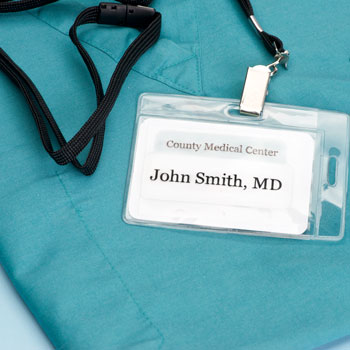These are scary times for public health
Actions taken by leadership at the Department of Health and Human Services are creating confusion and slowly killing off the science and research that public health depends on.
The holiday of Halloween evolved from a Celtic festival marking the end of summer and the harvest, when the veil between the worlds of the living and the dead thins, allowing spirits to return to earth. It should be a time of spooky fun, with costumes, candy, and a few jump scares. Unfortunately, this year, it also comes at a time when real scares are deteriorating our public health system in the U.S., likely with significant health consequences for our population. These are the things keeping me awake at night right now.
The threats to vaccine access are terrifying. Since Robert F. Kennedy Jr. was appointed Secretary of Health and Human Services (HHS), his actions have significantly eroded trust in and access to lifesaving immunizations across the country. In February, the Secretary cancelled the CDC's “Wild to Mild” influenza vaccination awareness campaign, postponed a meeting of the Advisory Committee on Immunization Practices (ACIP), and canceled a meeting of the Vaccines and Related Biological Products Advisory Committee (VRBPAC).
ACIP is responsible for making annual immunization schedule recommendations to the CDC. ACIP's recommendations are also tied by law to insurance coverage of vaccine administration with no cost-sharing for patients. VRBPAC makes recommendations for the annual formulation of the COVID-19 and flu vaccines.
Then, in March, Secretary Kennedy published a commentary on the measles outbreak in which he said that the decision to vaccinate is a personal one and falsely claimed that certain vitamins could prevent measles. This was followed by CDC leaders ordering staff not to publish an expert assessment on the increased risks of catching measles in areas near outbreaks where vaccination rates are lagging. Then, approximately $11 billion in public health funds to support the immunization infrastructure across the country were clawed back. This included grant funding targeted at tracking the measles outbreak.
May saw the Secretary unilaterally announce that the CDC would no longer recommend the COVID-19 vaccine for healthy children and pregnant women. Shortly after this, in early June, the Secretary announced that he was reconstituting ACIP by firing the existing 17 members and appointing eight new members (ultimately only seven of those new members have been serving on the committee). In late June, the newly constructed ACIP met. Members voted on recommendations for respiratory syncytial virus immunization but did not take a vote on COVID-19 vaccines, thus leaving the Secretary's unilateral recommendations in place; they also listened to a presentation on thimerosal in flu vaccines by a layperson that was full of inaccurate information. As ACP's President, Jason M. Goldman, MD, MACP, who is also ACP's liaison to ACIP, stated in a recent Ideas and Opinions article in Annals of Internal Medicine, “The June 2025 meeting of the committee abandoned the previously well-established procedures of consistent evidence-based decision making that included review of vaccine studies, epidemiologic data, and vaccine safety assessments developed by the previously described workgroups.”
Most recently, HHS disinvited all medical society ACIP liaisons from participating in workgroup discussions; they can now only listen in and may be able to comment during the full ACIP public meetings. ACP, along with many other societies, expressed our deep disappointment in this change, stating, “For decades, liaisons from our organizations have reviewed published and unpublished data and literature related to vaccine efficacy, effectiveness, and safety and provided unbiased input for ACIP's consideration. To remove our deep medical expertise from this vital and once transparent process is irresponsible, dangerous to our nation's health, and will further undermine public and clinician trust in vaccines.”
The list of concerns regarding vaccine access now and in the future keeps growing, with HHS halting most federal investment in mRNA vaccine research in August. Given all of these concerns, ACP joined with the American Academy of Pediatrics (AAP), the Infectious Diseases Society of America (IDSA), and others to bring a lawsuit forward against Secretary Kennedy for acting arbitrarily and capriciously in unilaterally changing the COVID-19 vaccination requirements for pregnant women and healthy children; the lawsuit also cited the unjust dismissal of 17 ACIP members and the appointment of replacements who have historically espoused antivaccine viewpoints. ACP also made the decision to call for Secretary Kennedy to be removed from his post and replaced with a qualified health expert with appropriate and relevant knowledge and experience. To me, engaging in a lawsuit as a plaintiff and calling for the removal of a public figure are pretty scary actions and go beyond past advocacy actions by ACP—but they were felt to be absolutely necessary to combat what is happening.
Beyond ACIP, we are monitoring concerns around the U.S. Preventive Services Task Force (USPSTF). On June 27, the Supreme Court ruled in Kennedy v. Braidwood Management, affirming that the ACA requirement for most private insurers and Medicaid expansion programs to cover USPSTF-recommended preventive services with no cost-sharing is constitutional. However, the ruling also stated that the Secretary may appoint or remove Task Force members at will and that the Secretary may supervise or review their recommendations directly. Since that decision, Secretary Kennedy has canceled the July USPSTF meeting and is expected to make significant changes to the task force membership.
I mentioned the recission of federal funding for state-level immunization and disease outbreak tracking, as well as the canceling of federal funds for mRNA vaccine research. But the devastation to research funding in the U.S. goes far beyond that and unfortunately is likely to have generational consequences. The administration has targeted more than 4,000 grants for termination at over 600 universities across the U.S., impacting institutions in all 50 states. This does not account for the additional billions more in funding that has already been frozen for colleges and universities. Data from the U.S. Department of the Treasury show that public universities and colleges have been a larger target for these funding terminations, with nearly twice the amount cut ($2.1 billion) than at private institutions ($1.2 billion). Further, the expected cap on the indirect cost rate for NIH grants at 15% also exacerbates these issues (note that this cap is currently blocked by the courts, pending appeals). Quite frankly, our scientific research infrastructure in this country is under attack, and not by some fictional horror movie character, but by our own government. It is not clear if or how these funds can ever be recovered or somehow provided in an unbiased or ethical manner by private entities.
Another previously trusted source of information has been the federal agencies themselves. Researchers and the American public used to be able to depend on databases and information provided by the CDC, NIH, FDA, and others, but this is no longer the case. Many may recall that on Jan. 31, numerous federal websites were taken down, including some widely used, large-scale national health surveys, indices, and data dashboards that inform research, policymaking, and media coverage about health care and public health. By Sunday, Feb. 2, some of these websites began to come back online, and since then two different lawsuits have led to the courts ordering their restoration. Yet this has still not occurred in full. Many sites are still missing information, and others now contain information that is no longer backed by the best available evidence.
On top of this, the administration is actively working to block researchers who are still federally funded from publishing in well-established, peer-reviewed journals, like Annals of Internal Medicine. In fact, Jay Bhattacharya, the head of the NIH, has gone so far as to establish a new journal, Journal of the Academy of Public Health (JAPH), with some unusual editorial approaches that have raised concern.
One of the real challenges with this new journal and the administration's Make America Healthy Again (MAHA) Report is that some of the information they contain is accurate and important, but it is mixed in with misinformation and questionable sources. It makes it confusing to know what is accurate even for those of us in the field of public health, and likely even more so for the general public.
It is like a spider web of overlapping approaches. Each action taken by Secretary Kennedy and other current HHS leaders is a thread that does some damage on its own, but taken together, all of these approaches have built a strong web that is creating confusion and slowly killing off the science and research that our public health depends on. That veil between the living and the dead is thinner thanks to these actions, as many lives will be lost as a result. Is it risky for me to be so blunt in making this statement? Absolutely—but we must be on the right side of history when it comes to protecting science and public health. We must get ourselves out of this scary time by continuing to push for clear, evidence-based research and policies. Let's make Halloween fun again (MHFA).





